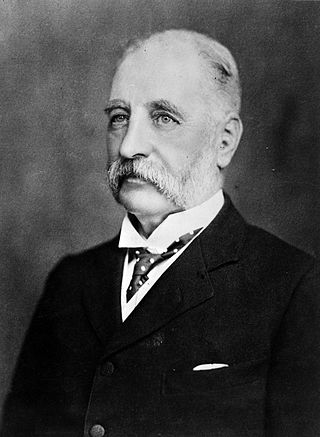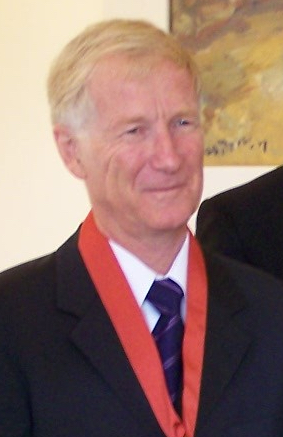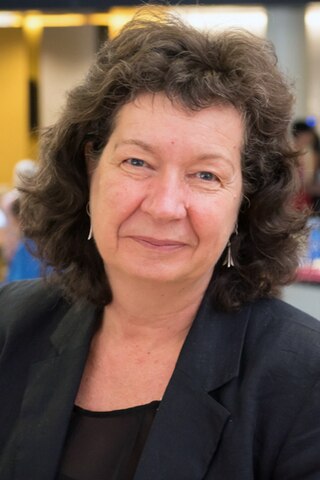Related Research Articles

Sir James Hector was a Scottish-New Zealand geologist, naturalist, and surgeon who accompanied the Palliser Expedition as a surgeon and geologist. He went on to have a lengthy career as a government employed man of science in New Zealand, and during this period he dominated the colony's scientific institutions in a way that no single man has since.
Harold William Wellman was an English-born New Zealand geologist known for his work on plate tectonics. He is notable for his discovery of South Island's Alpine Fault. Wellman became a Fellow of the Royal Society of New Zealand in 1954, and was awarded the Hector Memorial Medal and Prize in 1957 and the McKay Hammer Award in 1959.

The Royal Society Te Apārangi is a not-for-profit body in New Zealand providing funding and policy advice in the fields of sciences and the humanities. These fundings are provided on behalf of the New Zealand Ministry of Business, Innovation and Employment.
John Marwick was a New Zealand palaeontologist and geologist.

Peter John Barrett is a New Zealand geologist who came to prominence after discovering the first tetrapod fossils in Antarctica in 1967.

Sir Thomas Hill Easterfield was born in Doncaster the youngest of four children of Edward Easterfield, savings bank secretary, and Susan. He attended Doncaster Grammar School, and later entered the Yorkshire College of Science, now the University of Leeds. He was then appointed a Senior Foundation Scholar of Clare College, Cambridge, from where he gained First Class honours in the Natural Sciences Tripos in 1886.

Rodney Graham Downey is a New Zealand and Australian mathematician and computer scientist, an emeritus professor in the School of Mathematics and Statistics at Victoria University of Wellington in New Zealand. He is known for his work in mathematical logic and computational complexity theory, and in particular for founding the field of parameterised complexity together with Michael Fellows.
William Percival Evans was a New Zealand chemist who specialised in the study of local brown coals.
Francis Brian Shorland was a New Zealand organic chemist.
Edward Edinborough Chamberlain was a New Zealand plant pathologist.
Richard Conrad "Con" Cambie is a New Zealand natural products chemist known for his research into bioactive compounds.
Douglas Saxon Coombs was a New Zealand mineralogist and petrologist.
Peter Bernard David de la Mare was a New Zealand physical organic chemist.

Edward Neill Baker is a New Zealand scientist specialising in protein purification and crystallization and bioinformatics. He is currently a distinguished professor at the University of Auckland.
John Henderson was a New Zealand geologist and science administrator.
Jeffery Lewis Tallon is a New Zealand physicist specialising in high-temperature superconductors.

Wendy Larner is a New Zealand social scientist who has focussed on the interdisciplinary areas of globalisation, governance and gender. She has been Vice-Chancellor and President of Cardiff University since September 2023, having previously been provost at Victoria University, Wellington, New Zealand.
Brian Halton was a New Zealand organic chemist. He is noted for his investigation of highly strained and fused aromatic compounds, and was also active as an historian of chemistry.
David Vere-Jones is a New Zealand statistician and probabilist. He is known in particular for his work on earthquake forecasting.
Roger Alan Cooper was a New Zealand paleontologist, known as a leading expert on the fossil zooplankton of the early Paleozoic and the paleobiology of Zealandia.
References
- 1 2 Barrowman, Rachel (1999). Victoria University of Wellington, 1899–1999: a history. Wellington: Victoria University Press. p. 180. ISBN 978-0-86473-369-6.
- ↑ "NZ university graduates 1870–1961: U–Wh" . Retrieved 17 October 2014.
- ↑ Walcott, Richard (1965). Structure and Petrology of the Red Hill Complex, Nelson (PDF) (Doctoral thesis). Open Access Repository Victoria University of Wellington, Victoria University of Wellington. doi: 10.26686/wgtn.16945564 .
- ↑ "Lithosphere mechanics". Victoria University of Wellington. 1981. Archived from the original on 17 October 2014. Retrieved 17 October 2014.
- 1 2 McKenzie, Dan P.; Walcott, Richard I. (7 March 2000). "Walcott receives 1999 Whitten medal". Eos. 81 (10): 103. Bibcode:2000EOSTr..81..103M. doi:10.1029/00eo00067.
- 1 2 "Scientist wins award". Waikato Times. 10 April 2000. p. 2.
- ↑ "Richard Walcott". Victoria University of Wellington. 24 April 2012. Retrieved 17 October 2014.
- ↑ "The Academy: V–Z". Royal Society of New Zealand. Retrieved 17 October 2014.
- ↑ "List of Fellows of the Royal Society 1660–2007" (PDF). Royal Society. July 2007. Retrieved 17 October 2014.
- ↑ "Hector Medal". Royal Society of New Zealand. Retrieved 17 October 2014.
- ↑ "Walcott Névé, Antarctica". www.geographic.org/. Retrieved 17 October 2014.